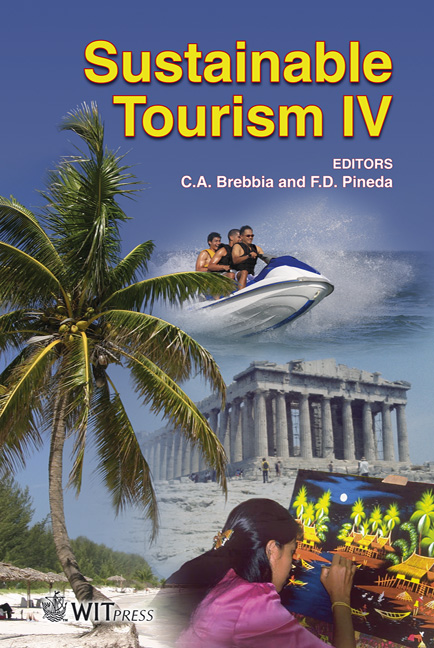Ecotourism As A Catalyst For Social Resiliency And The Cultural Preservation Of The Mandan, Hidatsa And Arikara Tribes
Price
Free (open access)
Transaction
Volume
139
Pages
16
Page Range
71 - 86
Published
2010
Size
4,774 kb
Paper DOI
10.2495/ST100071
Copyright
WIT Press
Author(s)
C. A. Wiley
Abstract
The United States harbors a painful history of cultural genocide among its native people. Today, many native communities remain hopeful that they can not only persevere but again prosper their specific cultures in an environment of fractionated land holdings and restricted economies with renewed social capitol and great, yet slowly eroding cultural capitol. Using a social resilience-based perspective, this study looks at the promise of ecotourism beyond (albeit including) its potential for economic development for three cultures and three communities that share heritage and landscape in rural North Dakota: the Mandan, the Arikara and the Hidatsa people. With few native speakers of the three languages, the effects of globalization and limited culturally based employment opportunities, these Three Affiliated Tribes earnestly seek additional tools for cultural preservation. This paper includes a series of proposals for tourism product development using existing assets in three communities to sustain culture in pursuit of the all-encompassing goal of total sovereignty. Keywords: ecotourism, social resiliency, economic development, Native Americans, cultural preservation. 1 Introduction The Fort Berthold reservation of the Three Affiliated Tribes of the Mandan, Hidatsa and Arikara people (MHA nation) is presently located on one million acres in north-western North Dakota adjacent Lake Sakakawea. This study
Keywords
ecotourism, social resiliency, economic development, Native Americans, cultural preservation





